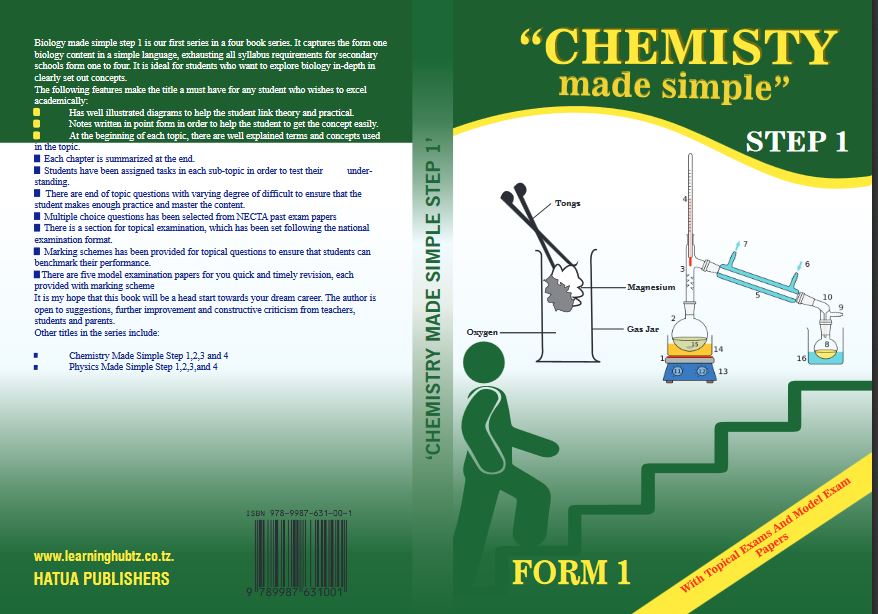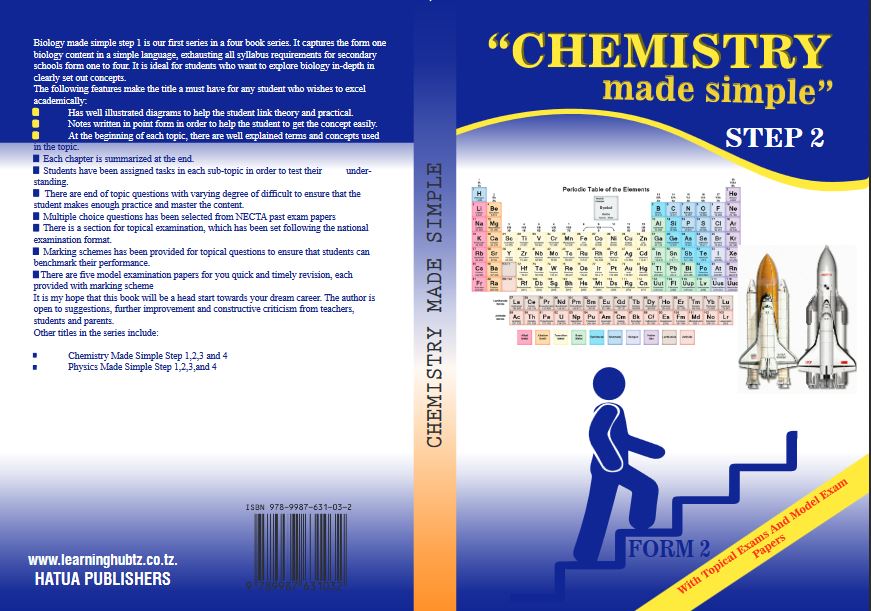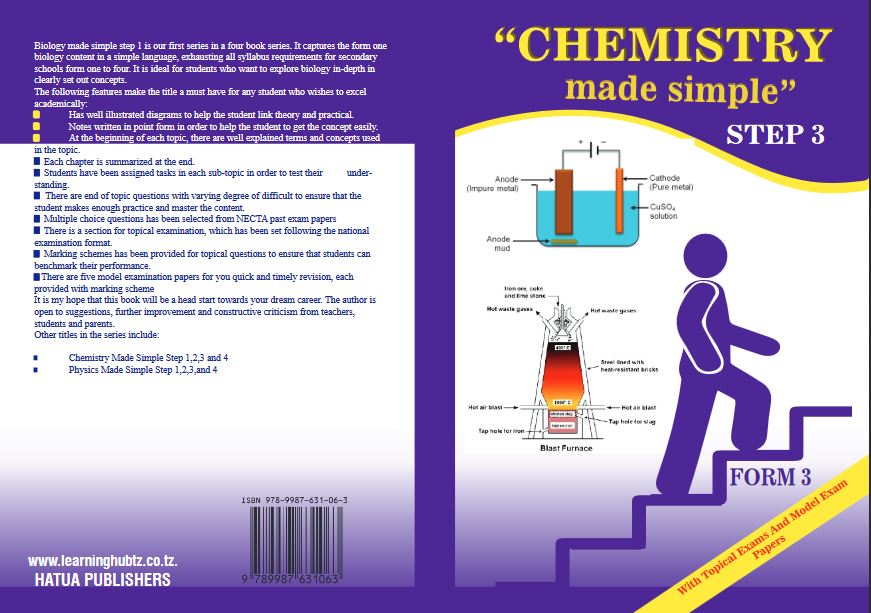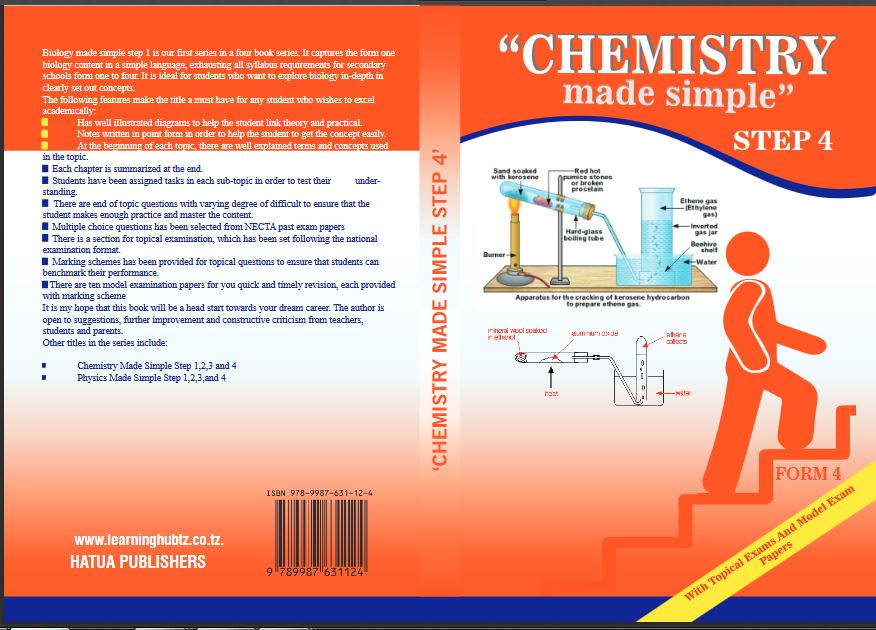THE UNITED REPUBLIC OF TANZANIA NATIONAL EXAMINATIONS COUNCIL
CERTIFICATE OF SECONDARY EDUCATION EXAMINATION
022 ENGLISH LANGUAGE
(For School Candidates Only)
Time:3Hours Thursday, 6 th October 2011a.m.
Instructions
-
This paper consists of sections A, B, C and D.
-
Answer allquestions in sections A and B? and in sections C and D as instructed under each section.
-
Cellular phones and calculators are not allowed in the examination room.
-
Write your Examination Number on every page of your answer booklet(s).
SECTION A (10 Marks) COMPREHENSION AND SUMMARY
Answer all questions in this section.
-
Read the passage below carefully and answer the questions that follow.
The Minister for Lands and Environment was Hon. Peter Msokonde. At thirty six, he was the youngest member of the cabinet and was one of my psychology students during his undergraduate days at the University of Dar es Salaam. Although he was generally below the average in his scholastic achievement at the University, he had nevertheless been a political activist among his fellow students, and his activities had not gone unnoticed by the party bosses. So active was he in the University Wing of the Youth League that immediately after the graduation he was appointed as one of the department heads at the ruling party headquarters.
From a humble beginning he climbed up the political ladder until finally, he headed the prestigious department of Mobilization and Propaganda.
During a minor cabinet reshuffle a year ago, His Excellence, the President, nominated Peter Msokonde a member of parliament and appointed him Minister for Lands and Environment. Such meteoric rise to positions of eminence is not uncommon in Third World Countries. All you need is to have your name mentioned at the right time to the right people. But if due regard is not given to such things as age, education and experience, and instead promotions are made on the basis of irrelevant reasons such as “this is one of us,” then one of two things may happen: either the incumbent gets spoiled by being inebriated by his own pomposity, or he breeds resentment among his more deserving subordinates.
Such was the case with Peter Msokonde. He was six years younger than Tom, his Permanent Secretary, ten years younger than me Chris, his former professor, and twelve years younger than David Chambakane. In addition to the disparity in age, there were differences in educational level, Tom was the holder of the second degree in Economics and I had a second degree in Education while David had a doctorate in Mathematics. So the trip we were about to make to Sweden was to be led not only by the youngest member of the group but also by the least qualified academically.
The Hon. Minister invited David and I to his office a few days before our departure to tie up some loose ends related to with our impending trip. The Permanent Secretary was also in attendance at the meeting.
The young Minister was sitting behind an immaculately polished executive desk on which were placed two small flags: the National flag and the flag of the ruling party. When he saw me entering, he stood up and started moving to a side conference table.
“Hi, you are welcome” He said, showing me to a chair.
“You rarely come to my office. It’s good to drop in sometimes, even when you have nothing official to discuss. You’re my former teacher, so fill free to drop in anytime and give me moral encouragement.”
“Oh, that’s very kind of you,” I said. “But you people are so busy with matters of state, I hate to inflict myself on you unnecessarily.”
“Not you. You don’t need an appointment to see me. After what you did for me at the University, how can I dislike seeing you,” he said smiling broadly, and obviously recalling to mind the hours I used to spend giving him special tuition. Then he turned to look at Tom and said, “Over to you, Tom. What’s it we’re discussing?
Questions
-
Hon. Peter Msokonde joined the cabinet because:
A he studied psychology at the University
B he was the youngest member of the cabinet
C he was a political activist
D he was a member of the University Youth League.
-
The department that Msokonde was appointed to head at the ruling party headquarters was responsible for:
A making and implementing new programmes for the party
B spreading, influencing and recruiting new party members
C portraying a good image of the party to the members of the public
D challenging the other parties.
-
The rise of Peter Msokonde from nowhere to a position of eminence is said to be common in the third world countries because:
A His Excellence the President had nominated him as an MP, thus enabling him to be a minister
B his name was mentioned to the president
C age, education and experience do count
D favouritism based on the slogan “this is one of us” do count in those countries.
-
The narrator is urged to visit the Minister even if he doesn’t have anything official to discuss because the minister:
A needs encouragement from his former teacher
B has nothing to do in the office
C likes his former teacher
D wants to repay for the assistance he had received from him at the University.
-
Using the information from the passage, fill in the table the names, age and areas of study of the four men who met in the ministers side conference table, starting from the youngest to the oldest person.
| Personal Particulars | Seniority | |||
| First | Second | Third | Fourth | |
| Name | | | | |
| Age | | | | |
| Area of study | | | | |
-
Read the passage below carefully and summarise it in five sentences.
When preparing cake, one should consider choice and purpose of cake ingredients.
Flour is the basis of all cakes and so it is obviously just as important to choose the right sort of flour as to use the correct amount. Flour is called strong if it contains a large amount of gluten (more than 10%), and weak or soft if it contains a small amount.
Sugar gives cakes a sweet flavour and improves texture. Caster sugar is the best variety for most light cakes, because its small crystals dissolve easily during mixing? it also creams well to give a smooth texture. Sugar also adds colour to the crust and improves quality.
Fat for use in cakes should have the following qualities: It should cream well so that the cake mixture is smooth and light? Fat therefore contributes to volume by helping to aerate the mixture during creaming. It should make the cake ‘short’ or crumbly by coating the starch in the flour with an oily film so that the baked cake ‘melts’ in the mouth? It should be neither too hard nor too soft and it should have a good flavour of the fats used in cake making, such as margarine, butter and cooking fat. Butter is the best.
Egg white assists in trapping and in moistening the cake mixture? it also adds strength to the structure when it coagulates on baking. Egg yolk adds richness and colour. Eggs used in cakes should be fresh and of good quality.
Dried fruit adds sweetness and flavour to cakes. Fruits should be washed and dried before being added to the mixture and seeds if present should be removed. Care should also be taken to see that the mixture is stiff enough to support the fruit or the fruit will sink to the bottom of the cake.
View AnsSECTION B (20 Marks) PATTERNS AND VOCABULARY
Answer all the questions in this section.
3. Complete the sentences, using the information provided below about Mpoki’s life history.
- 1971 - 1977 at Nyakato Primary school
- 1977 buy a bicycle
- 1978 - 1984 at school and college
- 1985 -1988 live in Mwanza
- 1989 buy a house in Nyamagana
- 1990 - 1995 teach English at Hill Crest Secondary School
For example: In 1975 Mpoki was going to school at Nyakato Primary School.
In 1977 Mpoki bought a bicycle.
(a) In 1979
(b) In 1986,.
(c) In 1989,.
(d) In 1991,.
-
In each of the following sentences one word is wrong. Correct it by writing the right spelling.
-
Our headmaster told us that it is better to use local busses because they are cheap and reliable.
-
We are going to have a show next week. The prefects will be doing a sound cheque before the concert.
-
I like the kind of holiday where I can sit on the bitch for a week and do nothing.
-
May I have a peace of mbuni soap please!
5. Choose two things among the following and write them against the people listed to show that you know who uses them in their daily activities.
Things:
Thermometer, car, injection, overhead projector, trowel, dipstick, gun, blackboard, tray, measuring tape, bullets, sewing machine, plates, aeroplane.
People:
-
Teacher:,.
-
Tailor:,.
-
Cook:,.
-
Driver:,.
-
Read the following passage carefully and answer all questions that follow.
Kitumburuju and his wife Nacha have two children. The boy child is called Tesua and girl child is called Echa. Tesua is married to Niza and they have two children, a boy called Mani and a girl called Mndee.
Echa is married to Chika and they have two boys. The older one is Mgosi and the young one is Semsi.
Questions
-
What does Semsi call Niza?
-
What does Kitumuruju call Mndee?
-
What does Chika call Nacha?
-
What does Mani call Mgosi?
THE UNITED REPUBLIC OF TANZANIA NATIONAL EXAMINATIONS COUNCIL
CERTIFICATE OF SECONDARY EDUCATION EXAMINATION
022 ENGLISH LANGUAGE
(For School Candidates Only)
Time:3Hours Thursday, 6 th October 2011a.m.
Instructions
-
This paper consists of sections A, B, C and D.
-
Answer allquestions in sections A and B? and in sections C and D as instructed under each section.
-
Cellular phones and calculators are not allowed in the examination room.
-
Write your Examination Number on every page of your answer booklet(s).
SECTION A (10 Marks) COMPREHENSION AND SUMMARY
Answer all questions in this section.
-
Read the passage below carefully and answer the questions that follow.
The Minister for Lands and Environment was Hon. Peter Msokonde. At thirty six, he was the youngest member of the cabinet and was one of my psychology students during his undergraduate days at the University of Dar es Salaam. Although he was generally below the average in his scholastic achievement at the University, he had nevertheless been a political activist among his fellow students, and his activities had not gone unnoticed by the party bosses. So active was he in the University Wing of the Youth League that immediately after the graduation he was appointed as one of the department heads at the ruling party headquarters.
From a humble beginning he climbed up the political ladder until finally, he headed the prestigious department of Mobilization and Propaganda.
During a minor cabinet reshuffle a year ago, His Excellence, the President, nominated Peter Msokonde a member of parliament and appointed him Minister for Lands and Environment. Such meteoric rise to positions of eminence is not uncommon in Third World Countries. All you need is to have your name mentioned at the right time to the right people. But if due regard is not given to such things as age, education and experience, and instead promotions are made on the basis of irrelevant reasons such as “this is one of us,” then one of two things may happen: either the incumbent gets spoiled by being inebriated by his own pomposity, or he breeds resentment among his more deserving subordinates.
Such was the case with Peter Msokonde. He was six years younger than Tom, his Permanent Secretary, ten years younger than me Chris, his former professor, and twelve years younger than David Chambakane. In addition to the disparity in age, there were differences in educational level, Tom was the holder of the second degree in Economics and I had a second degree in Education while David had a doctorate in Mathematics. So the trip we were about to make to Sweden was to be led not only by the youngest member of the group but also by the least qualified academically.
The Hon. Minister invited David and I to his office a few days before our departure to tie up some loose ends related to with our impending trip. The Permanent Secretary was also in attendance at the meeting.
The young Minister was sitting behind an immaculately polished executive desk on which were placed two small flags: the National flag and the flag of the ruling party. When he saw me entering, he stood up and started moving to a side conference table.
“Hi, you are welcome” He said, showing me to a chair.
“You rarely come to my office. It’s good to drop in sometimes, even when you have nothing official to discuss. You’re my former teacher, so fill free to drop in anytime and give me moral encouragement.”
“Oh, that’s very kind of you,” I said. “But you people are so busy with matters of state, I hate to inflict myself on you unnecessarily.”
“Not you. You don’t need an appointment to see me. After what you did for me at the University, how can I dislike seeing you,” he said smiling broadly, and obviously recalling to mind the hours I used to spend giving him special tuition. Then he turned to look at Tom and said, “Over to you, Tom. What’s it we’re discussing?
Questions
-
Hon. Peter Msokonde joined the cabinet because:
A he studied psychology at the University
B he was the youngest member of the cabinet
C he was a political activist
D he was a member of the University Youth League.
-
The department that Msokonde was appointed to head at the ruling party headquarters was responsible for:
A making and implementing new programmes for the party
B spreading, influencing and recruiting new party members
C portraying a good image of the party to the members of the public
D challenging the other parties.
-
The rise of Peter Msokonde from nowhere to a position of eminence is said to be common in the third world countries because:
A His Excellence the President had nominated him as an MP, thus enabling him to be a minister
B his name was mentioned to the president
C age, education and experience do count
D favouritism based on the slogan “this is one of us” do count in those countries.
-
The narrator is urged to visit the Minister even if he doesn’t have anything official to discuss because the minister:
A needs encouragement from his former teacher
B has nothing to do in the office
C likes his former teacher
D wants to repay for the assistance he had received from him at the University.
-
Using the information from the passage, fill in the table the names, age and areas of study of the four men who met in the ministers side conference table, starting from the youngest to the oldest person.
| Personal Particulars | Seniority | |||
| First | Second | Third | Fourth | |
| Name | | | | |
| Age | | | | |
| Area of study | | | | |
-
Read the passage below carefully and summarise it in five sentences.
When preparing cake, one should consider choice and purpose of cake ingredients.
Flour is the basis of all cakes and so it is obviously just as important to choose the right sort of flour as to use the correct amount. Flour is called strong if it contains a large amount of gluten (more than 10%), and weak or soft if it contains a small amount.
Sugar gives cakes a sweet flavour and improves texture. Caster sugar is the best variety for most light cakes, because its small crystals dissolve easily during mixing? it also creams well to give a smooth texture. Sugar also adds colour to the crust and improves quality.
Fat for use in cakes should have the following qualities: It should cream well so that the cake mixture is smooth and light? Fat therefore contributes to volume by helping to aerate the mixture during creaming. It should make the cake ‘short’ or crumbly by coating the starch in the flour with an oily film so that the baked cake ‘melts’ in the mouth? It should be neither too hard nor too soft and it should have a good flavour of the fats used in cake making, such as margarine, butter and cooking fat. Butter is the best.
Egg white assists in trapping and in moistening the cake mixture? it also adds strength to the structure when it coagulates on baking. Egg yolk adds richness and colour. Eggs used in cakes should be fresh and of good quality.
Dried fruit adds sweetness and flavour to cakes. Fruits should be washed and dried before being added to the mixture and seeds if present should be removed. Care should also be taken to see that the mixture is stiff enough to support the fruit or the fruit will sink to the bottom of the cake.
View AnsSECTION B (20 Marks) PATTERNS AND VOCABULARY
Answer all the questions in this section.
3. Complete the sentences, using the information provided below about Mpoki’s life history.
- 1971 - 1977 at Nyakato Primary school
- 1977 buy a bicycle
- 1978 - 1984 at school and college
- 1985 -1988 live in Mwanza
- 1989 buy a house in Nyamagana
- 1990 - 1995 teach English at Hill Crest Secondary School
For example: In 1975 Mpoki was going to school at Nyakato Primary School.
In 1977 Mpoki bought a bicycle.
(a) In 1979
(b) In 1986,.
(c) In 1989,.
(d) In 1991,.
-
In each of the following sentences one word is wrong. Correct it by writing the right spelling.
-
Our headmaster told us that it is better to use local busses because they are cheap and reliable.
-
We are going to have a show next week. The prefects will be doing a sound cheque before the concert.
-
I like the kind of holiday where I can sit on the bitch for a week and do nothing.
-
May I have a peace of mbuni soap please!
5. Choose two things among the following and write them against the people listed to show that you know who uses them in their daily activities.
Things:
Thermometer, car, injection, overhead projector, trowel, dipstick, gun, blackboard, tray, measuring tape, bullets, sewing machine, plates, aeroplane.
People:
-
Teacher:,.
-
Tailor:,.
-
Cook:,.
-
Driver:,.
-
Read the following passage carefully and answer all questions that follow.
Kitumburuju and his wife Nacha have two children. The boy child is called Tesua and girl child is called Echa. Tesua is married to Niza and they have two children, a boy called Mani and a girl called Mndee.
Echa is married to Chika and they have two boys. The older one is Mgosi and the young one is Semsi.
Questions
-
What does Semsi call Niza?
-
What does Kitumuruju call Mndee?
-
What does Chika call Nacha?
-
What does Mani call Mgosi?
-
Rewrite the following sentences according to instructions given after each.
-
Mama Pekupeku was too fat to win the race. (Rewrite using ‘sothat’ )
-
Had she heard the noise, she would have opened the door. (Begin ‘She would have
-
Although it was raining, he managed to go to school. (Use: Despite)
-
He always goes to school by foot. (Write the sentence correctly)
SECTION C (30 Marks) LANGUAGE USE
Answer questions 8, 9 and two of the four alternatives given in question 10.
-
The following sentences are jumbled. Rearrange them in a logical sequence to make a meaningful paragraph by writing the corresponding letters in the answer booklet(s) provided.
For example (i)H
-
With the aid of television camera, visual images are changed into electrical signals.
-
A television set receives these signals and one can watch them on the screen.
-
However, in order to enable the television set to receive these signals properly an antenna is needed.
-
These are then combined with radio waves and broadcast in the same way as ordinary sound signals.
-
Television is the system of transmitting moving pictures by radio or cable.
9. Match the items in ListAwith the responses in ListBto make meaningful sentences by writing the letter of correct response beside the item number.
| LIST A | LIST B |
| (i) The carpenter took the tools from the boy who was his. (ii) Because of hunger, the refugees collected roots and plant which were. (iii) Minja tried to avoid the person whohim a lot of money. (iv) Several people were trapped in the boat which in the river. (v) Your friend hashis exams. |
|
| LIST OF READINGS | |
| NOVELS AND SHORT STORIES | |
| A Wreath for Father Mayer of Masasi | S.N. Ndunguru (1997), Mkuki na Nyota |
| Unanswered Cries | Osman Conteh, Macmillan |
| Passed Like a Shadow | B.M Mapalala (2006), DUP |
| Spared | S.N. Ndunguru (2004), Mkuki na Nyota |
| Weep Not Child | Ngugi wa Thiong’o (1987)? Heinemann |
| The interview | P. Ngugi (2002), Macmillan |
| PLAYS | |
| Three Suitors: One Husband | O. Mbia (1994), Eyre Methuen |
| The Lion and the Jewel | W. Soyinka (1963), OUP |
| This Time Tomorrow | Ngugi wa Thiong’o (1972), Heinemann |
| The Black Hermit | Ngugi wa Thiong’o (1972), Heinemann |
| POETRY | |
| Songs of Lawino and Ocol | O. P’Bitek (1979), EAPH |
| Growing up with Poetry | D. Rubadiri (ed) (1989), Heinemann |
| Summons | R. Mabala (1960), TPH |
-
Discuss how European colonization of Africa is portrayed in four poems of your choice.
View AnsRead the following poem and answer the questions that follow.
Behold!
The sun has arisen, And with it the sons of the land have risen too Forward they go Well armed.
Singing praises to the beauty of the sunrise, With the determination of longterm warriors, Challenging the enemy
With the courage of free mind And the vigour of a clean purpose. Sit and wait brethren,
Wait and see what glory they bring at sunset? How they pay homage to the land.
And their people!
Questions
-
Write the title of this poem in one word.
-
What is the poem about?
-
For whom does the poem tell us that the sun has risen?
-
What does a word “sunrise” symbolize?
-
What is the theme of the poem?
-
What type of poem is this?
-
Comment on the structure of this poem.
-
The poem contains two major images. Mention them.
-
The poet talks about “challenging the enemy.” Who do you think the enemy might be?
-
What do we learn from this poem?
-
Is it true that the problems and injustices experienced by the people in the books you have read are caused by the white man? Use two plays as references to support your arguments.
-
With reference to any two novels you have read under this section, discuss things which you think are not good to be practiced with the future generations.
ANSWER

Hub App
 For Call,Sms&WhatsApp: 255769929722 / 255754805256
For Call,Sms&WhatsApp: 255769929722 / 255754805256
 For Call,Sms&WhatsApp: 255769929722 / 255754805256
For Call,Sms&WhatsApp: 255769929722 / 255754805256
WHATSAPP US NOW FOR ANY QUERY
App Ya Learning Hub Tanzania





